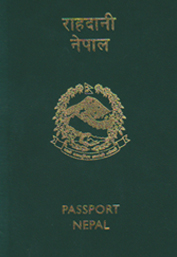Number of passport applicants on the rise
We had estimated that passport seekers would decrease once we replaced old handwritten passports, but more and more people are trying to go abroad, mainly due to unfavourable political situation
Kathmandu, December 11
The number of Nepalis applying for passports has risen significantly in the past few month, though the Department of Passport (DoP) was anticipating a decrease in the number of passport seekers after November 24, the deadline for obtaining machine readable passports.
Significant increment in passport applications is attributed to the months of political unrest in the country, particularly in eastern and central parts of the Tarai.
According to the Department of Passport, on an average 5,000 citizens apply for passport daily these days. On Wednesday alone, over 5,600 people submitted forms to acquire passports.
Director General of DoP Lok Bahadur Thapa told The Himalayan Times that the growing trend of passport seekers was just contrary to what was expected beforehand.
“We had estimated that passport seekers would decrease once we replaced old handwritten passports by November 24,” he added. “But more and more people are trying to go abroad, mainly due to unfavourable political situation in the country.”
The International Civil Aviation Organisation had set November 24 deadline to replace all handwritten passports with machine readable ones. Nepal, as one of the member countries of the UN specialised agency, replaced all but a few thousand previously issued ordinary passports with MRP.
Before ICAO deadline, an average of 3,000-4,000 passports were issued daily, of which many were only replacing the ordinary passports to meet ICAO deadline.
A DoP officer said majority of the applicants these days were from the Tarai region, where UDMF has been protesting against the promulgation of the new constitution for four months.
According to the Department of Foreign Employment data, at least 1,500 Nepalis leave Nepal every day in search for jobs, mainly in the Gulf states and Malaysia, where they work hard for a meagre salary of 200-300 US dollars a month.
It was widely expected that the promulgation of the new constitution would lead to economic development, thereby discouraging the exodus of people to the Gulf and Malaysia in pursuit of employment.






